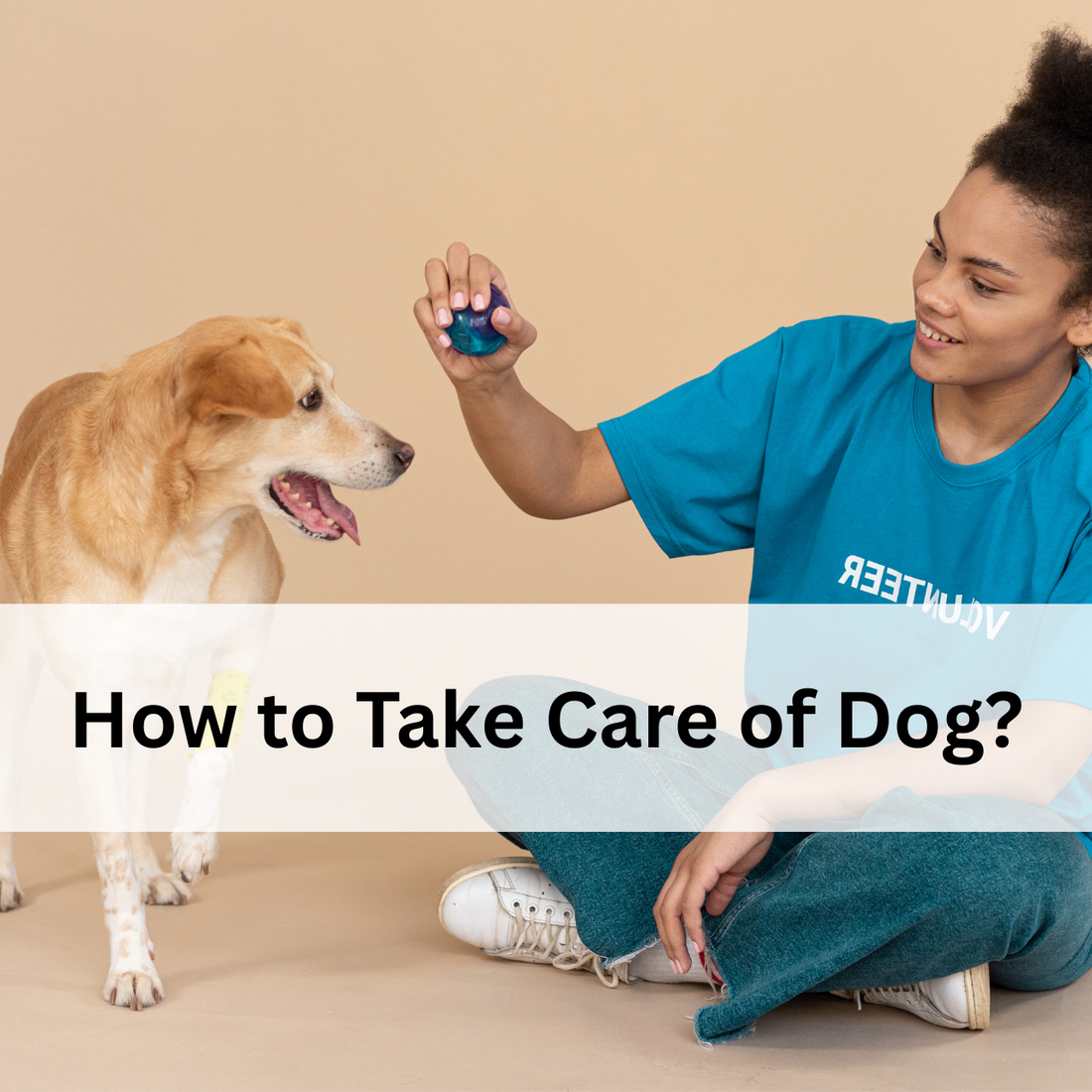
How to Take Care of a Dog: A Complete Beginner’s Guide
Dogs are more than just pets—they're loyal companions who become family. Knowing how to take care of a dog properly ensures they live a healthy, happy, and long life. Whether you're adopting a puppy or caring for an adult dog, being informed is the first step toward responsible pet ownership.
How to Take Care of a Dog: The Basics
Taking care of a dog begins with understanding their basic needs—proper nutrition, regular exercise, routine grooming, and consistent veterinary checkups. Dogs thrive in a structured environment where they feel safe, loved, and mentally stimulated. Providing a balanced diet suited to your dog’s breed, age, and size is essential, along with fresh water at all times.
Daily walks, playtime, and training sessions help meet their physical and emotional needs. Whether you're learning how to take care of a dog or how to take care of a puppy, establishing a routine and being attentive to your dog's behavior and health are the foundational steps to building a happy and healthy life together.
How to Take Care of a Puppy: Special Puppy Care Tips
Caring for a puppy requires extra attention, patience, and a nurturing environment to support their growth and development. Puppies need frequent feeding with high-quality puppy food rich in nutrients essential for their early life stages. Socialization is key—gradually introduce them to different people, pets, and environments to help them grow into well-adjusted adult dogs.
Begin basic training and potty routines early using positive reinforcement. Puppies are also more vulnerable to illnesses, so timely vaccinations and vet visits are crucial. Learning how to take care of a puppy means creating a safe, loving space where they can explore, learn, and thrive with confidence.
Daily Routine for Dog Care
Dogs thrive on routine. A sample daily care schedule includes:
- Morning walk and potty break
- Feeding
- Midday play or walk
- Evening meal
-
Relaxation and cuddle time
Nutrition and Feeding Guidelines

Choose age-appropriate food based on your dog's breed and size. Puppies may need food three times a day, while adult dogs usually eat twice. Avoid feeding them chocolate, grapes, onions, and processed human food. Consult a vet for portion recommendations.
Grooming and Hygiene

Regular grooming keeps your dog healthy and clean:
- Bathe once a month (or as needed)
- Brush their coat weekly
- Clip nails regularly
-
Clean ears and brush teeth
Exercise and Playtime

Dogs need physical and mental activity daily. Walks, fetch, tug-of-war, or agility games help release energy and prevent behavioral issues. Exercise needs vary by breed and age, so choose activities accordingly.
Vet Visits and Health Monitoring

Routine vet check-ups help catch issues early. Stay up to date with vaccinations, flea/tick treatments, and heartworm prevention. Watch for changes in appetite, behavior, or energy levels.
Mental Stimulation and Training

Training builds trust and prevents boredom. Use positive reinforcement techniques to teach commands. Puzzle toys, treat dispensers, and hide-and-seek games offer excellent mental challenges.
Creating a Safe Home Environment

Remove hazards like exposed wires, toxic plants, and sharp objects. Provide a cozy bed, clean water bowl, and safe toys. Puppies may need gates to restrict access during training.
Taking care of a dog is a joyful journey filled with love, learning, and loyalty. From establishing routines to understanding their needs, your effort ensures a fulfilling life for your furry companion. Whether you're wondering how to take care of a puppy or an older dog, the principles of good care remain the same.
FAQs
Q: What's the best way to potty train a puppy?
A: Use a consistent schedule, positive reinforcement, and crate training to teach them where to go.
Q: Can I train my dog at home?
A: Yes! Basic commands and obedience training can be done at home using treats, praise, and patience.
Q: What should I do if my dog shows unusual behavior?
A: Consult a vet to rule out health issues and consider a professional trainer for behavioral support.
At My Spoilt Pet, we celebrate the love between pets and their parents. Explore our collection of pet-themed t-shirts, coffee mugs, tote bags, and accessories — perfect for every proud pet lover in the USA.
Latest Post
- Best Family Dogs
- Black Cat Personality Traits
- Top Police Dog Breeds
- Best Dog Girl Names
- Best Gift Ideas For Cat Lovers
- Best Boy Dog Names
- Best Gift Ideas For Dog Lovers
